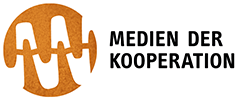„Test beds as instruments of innovation governance“
Test beds have emerged as a prominent policy instrument to foster innovation across geographical regions and technical domains. Although its popularity and proliferation, research has so far widely dismissed the co-productionist character of this test bed’s experimental approach to innovation. Test beds as spatially confined, purposeful experimental settings aim at once to test, demonstrate, and advance the viability of new sociotechnical arrangements. Basing on my doctoral research, I will present a definition of test beds and an analytic framework for this distinctive approach to innovation – both on the level of technological development and the policy level. Drawing on in-depth empirical analysis from two case studies, I will show how test bed innovation unfolds along three characteristic tensions: (1) an oscillation between controlled experimentation and messy co-creation processes, (2) a dual logic of quasi-scientific testing and public demonstration, (3) an emphasis on place and spatial delineation versus an inherent promise of scalability and generalizability for a future society at large. Test beds reconfigure and „test“ society around a new set of technologies and associated modes of governance based on particular visions of the future. In this talk I also raise questions of a responsible use and governance of test beds and experimentation as approaches of policymaking.
Franziska Engels is a policy advisor at the Policy Lab Digital Work and Society at the German Federal Ministry of Labour and Social Affairs since 2022. Before that, she was working for the German High-Tech Forum that has advised the former Government on implementing its research and innovation strategy (High-Tech Strategy 2025). Prior to her work in politics, she was a research fellow at the Berlin Social Science Center (WZB), the TU Berlin, and a visiting researcher at UC Berkeley. She holds a doctorate degree in innovation policy from TU Munich (Munich Center for Technology and Society) and a Master’s degree in Social Science from Humboldt-University Berlin.
On the Lecture Series: „Testing Infrastructures“
From QR codes used to verify COVID-19 vaccination status’ to cloud software used to train machine learning models, infrastructures of testing are proliferating. Whilst the infrastructures themselves come in different forms – from ‘off the shelf’ systems to tailor-made technologies – they all have a capacity to generate specific ‘test situations’ involving an array of different actors from ‘ghost’ workers to python scripts. An increasing reliance on digital platforms, protocols, tools, and procedures has led to a redistribution of testing itself: not just where testing takes place, and who performs the testing, but who has access to, and control over, mechanisms for testing, test protocols and of course, test results. In this lecture series, we focus on the practices making up the test infrastructures and explore different perspectives to make sense of the realities enacted by testing.
We invite our lecture guests to ask: how do testing infrastructures engender the construction of specific testing routines and practices? What kinds of affective experiences, reactions, and responses are generated through testing? Here we invite reflection on how testing infrastructures oft fade into the background, pointing to a tapestry of maintenance and repair practices. Lastly, what are the ways in which we can evaluate the role of digital infrastructures more broadly? This includes the challenge of what novel test methods can be developed and actually ‘tested’ to gain a better understanding of how infrastructures work. Our exploration of test practices in this context is interwoven with the search for test media that bind actors together or create barriers; that enable cooperation or declare it impossible.
Possible questions include (but are not limited to):
- What are the implications of testing in different social situations and in what moments do they come to the fore?
- When and where are tests conducted—for whom and what, through whom and what, and by whom and what actors?
- What are digital practices for/of testing and with what types of data do testing infrastructures support?
- What other practices spawn from distributed testing? Think of practices of passing and obfuscation within nested situations of testing and the outsourcing of ‘validation work’ as constructions that govern.
- What methodological strategies are there to make test procedures and their foundations transparent?
- Can different politics of testing be distinguished? If so, where and under what conditions?
- Can we demarcate between embodied testing and disembodied testing?
Gäste können sich per Mail anmelden ‚Sende eine E-Mail‘


